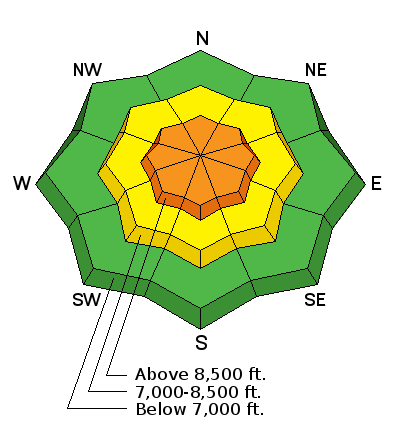Forecast for the Ogden Area Mountains

Saturday morning, December 23, 2017
Today the avalanche danger is rising to CONSIDERABLE at the upper elevations on wind loaded slopes. A MODERATE danger will exist on mid elevation slopes where there is any wind loading or where the new snow is resting on old snow that became weak and faceted. This storm will help build the snowpack but it remains thin and hitting rocks or having an avalanche drag you into rocks remains a major hazard.









